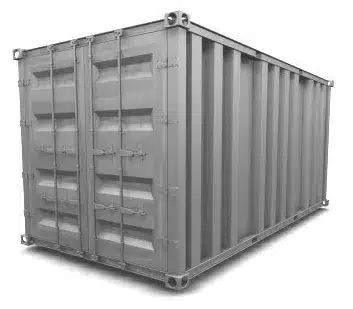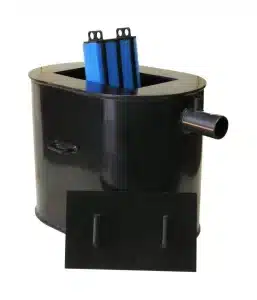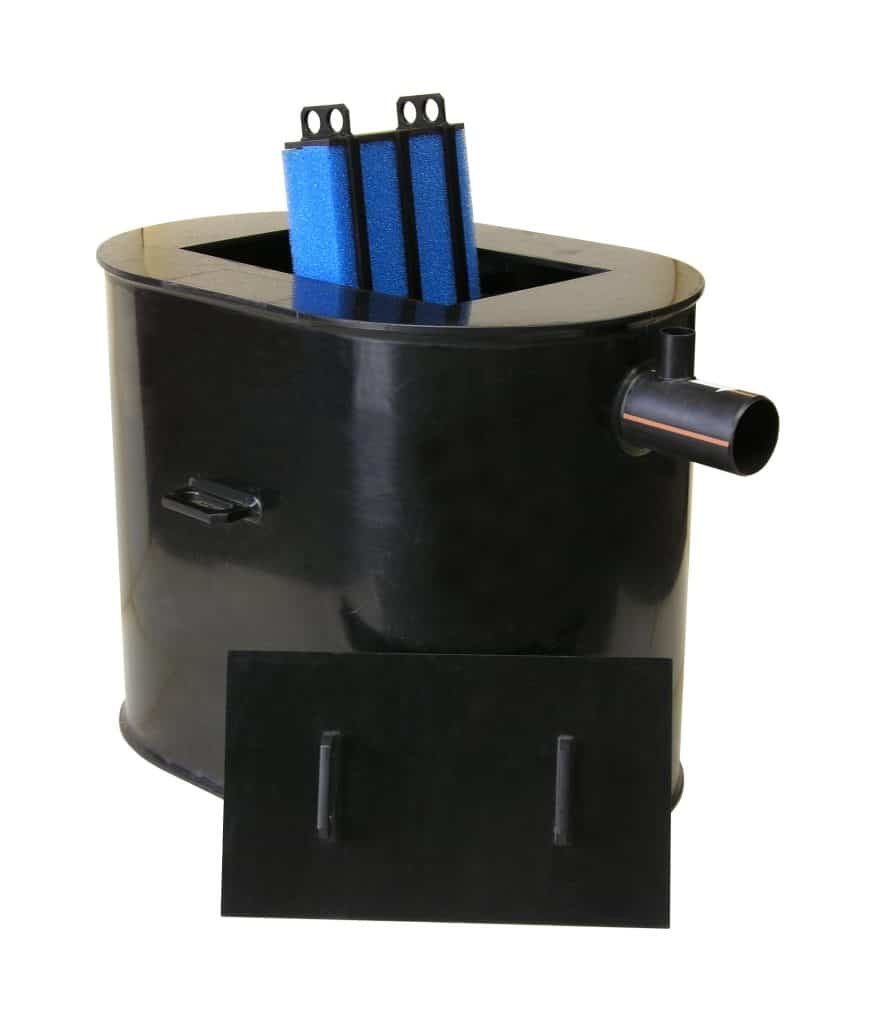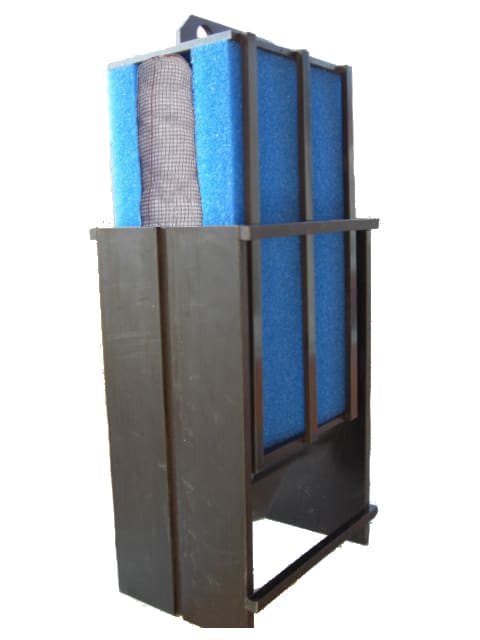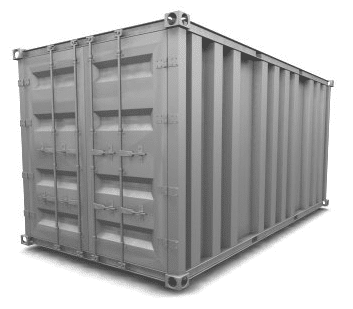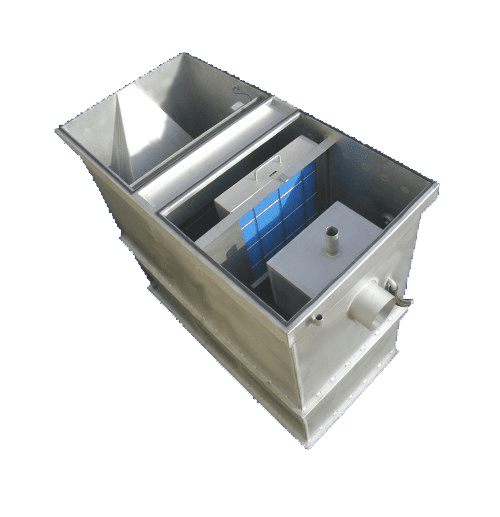Dealing with environmental rules can be tough for New Jersey businesses. Ever thought if your place meets the state’s strict standards? New Jersey Above Ground OWS (OWS) are key to keeping our environment safe and following the law. They make sure oily wastewater gets treated right before it’s released.
The New Jersey Department of Environmental Protection (NJDEP) keeps an eye on Above Ground OWS. They set rules and issue permits for their use. If facilities don’t follow these rules, they could face big fines or harm the environment. It’s important to know how these systems work to stay in line with the law and protect our water.
Key Takeaways
- Freytech Inc. New Jersey Above Ground OWS are regulated by NJDEP
- Facilities must obtain proper permits for OWS operation
- Regular maintenance and inspections are mandatory
- OWS play a vital role in environmental protection
- Compliance with regulations prevents fines and environmental damage
Understanding Above Ground Oil Water Separators in New Jersey
New Jersey industries have a big challenge with oily wastewater. Above Ground Oil Water Separators are key in solving this problem. They help companies follow strict environmental laws and protect our water resources.
Definition and Purpose of OWS
Above Ground Oil Water Separators remove oil from water. They let oil float to the top while clean water goes underneath. This stops pollutants from getting into our water and groundwater.
Regulatory Framework in New Jersey
New Jersey’s Department of Environmental Protection watches over oil water separators. The state has rules to keep our water and natural resources safe. Companies must follow these rules for installing, keeping up, and using these systems. These rules also match up with septic system and groundwater protection laws.
Environmental Benefits of Above Ground OWS
Using Above Ground Oil Water Separators has big environmental benefits. They keep our water clean by taking out harmful substances before they get into our waterways. This technology helps protect our groundwater and keeps our ecosystems healthy. By using these systems, companies help make New Jersey a cleaner and more sustainable place.
New Jersey Above Ground OWS Regulations and Permits
In New Jersey, Above Ground OWS must follow strict rules to protect the environment. The New Jersey Department of Environmental Protection (NJDEP) makes sure of this. They require facilities to get a Basic Industrial Stormwater General Permit.
This permit is all about preventing pollution and controlling sources of wastewater. Facilities need to make a Stormwater Pollution Prevention Plan (SPPP). This plan must have details like an inventory and maps of stormwater control features.
It’s key for New Jersey Above Ground OWS operators to follow the SPPP. They must start implementing the plan within six months of getting the permit. The plan should have a schedule for regular maintenance checks. This ensures proper wastewater treatment and follows environmental rules.
For facilities that get reauthorized, there are more steps. They must update their SPPP with new elements the NJDEP requires. These updates keep the Above Ground OWS effective in protecting New Jersey’s water.
Choosing the Right Above Ground OWS for Your Facility
Choosing the right Above Ground Oil Water Separators is key for good wastewater treatment and following environmental laws. Let’s look at what to think about when making this choice.
Types of Above Ground OWS Available
There are many designs of Above Ground Oil Water Separators to fit different needs. You can find vertical and horizontal cylindrical ones, and also open-top and closed-top ones. Each type has its own benefits for treating wastewater.
Factors to Consider When Selecting an OWS
Think about what your facility needs, the discharge limits, and local environmental laws when picking an OWS. The size of your operation, the contaminants you have, and how much wastewater you process daily matter. They help decide the best separator for you.
Freytech Inc.’s Enhanced Coalescing Technology
Freytech Inc. has advanced Above Ground Oil Water Separators with better coalescing technology. Their systems can separate up to 5 PPM, which is above the North American limit of 10 PPM. For places needing very high standards, their separators can get down to 0.1 PPM. This effectively removes tiny amounts of oil and other fuels.
Installation and Maintenance of Above Ground OWS
Installing and keeping up with Above Ground Oil Water Separators is crucial for good wastewater treatment. The New Jersey Department of Environmental Protection (NJDEP) requires monthly checks and records for these systems. This keeps them working well and following state laws.
Before putting in Above Ground Oil Water Separators, it’s important to check the soil. This helps find the best spot and the right foundation for the system. Companies like Freytech Inc. have experts for installation. They use tanks from trusted makers like Hoover Container Solutions, Inc. and Highland Tank.
Keeping Above Ground Oil Water Separators in good shape is essential. This means regular cleaning, checking parts, and replacing filters on time. Following a strict maintenance plan helps avoid big repair costs and keeps wastewater treatment smooth. A well-kept OWS also helps protect our environment.
These separators are crucial in storm water systems. They process runoff to meet the US EPA’s Clean Water Act standards. With effective oily water treatment, facilities protect the environment and dodge big fines.


